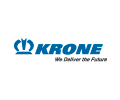The Freight Transport Association (FTA) has drawn up five priorities for customs and border arrangements to keep Britain trading post Brexit.
 Deputy Chief Executive James Hookham, who outlined the issues to the Home Affairs Committee in Parliament this afternoon, said avoiding costly delays was crucial – especially if Theresa May’s vision of “tariff-free and frictionless” trade cannot be achieved.
Deputy Chief Executive James Hookham, who outlined the issues to the Home Affairs Committee in Parliament this afternoon, said avoiding costly delays was crucial – especially if Theresa May’s vision of “tariff-free and frictionless” trade cannot be achieved.
The five key issues highlighted by FTA are:
- Customs systems must be scaled up to cope with the additional 300 million declarations by 2019
- Shippers and forwarders with no experience of EU customs declarations for the past 24 years must be allowed time to familiarise themselves with the process
- Other EU countries must put in place reciprocal arrangements to prevent delays at all borders, not just those into and out of the UK
- Advanced digital customs declarations must be enabled to prevent physical checks at borders
- The process must be phased in with no ‘cliff edge’ – transport operators’ systems are already stretched and will not cope
Mr Hookham gave evidence at a session on the implications for the transport and logistics industry of the UK’s exit from the EU, where he stressed the importance of keeping Britain trading throughout the process and ensuring as few delays as possible.
“Hopefully, there will be ‘frictionless trade’ between the UK and EU, but if there isn’t, or a prospect there won’t be, then these are the key issues for FTA members. We already know the impact of port delays – just one hour’s delay adds £15,000 cost to the road haulage industry – so a streamlined process is vital.
“Shippers, forwarders and transport operators in the UK have been used to open borders in Europe for 24 years so it’s going to take time to adjust, it can’t just change overnight. A smooth transition will ensure that Britain’s trade with other EU countries – both in and out – isn’t compromised,” he said.
The FTA is hosting a ‘Keep Britain Trading’ Conference at The Queen Elizabeth II Centre in Westminster on Wednesday 15 March, where shippers and forwarders can explore the implications of new Customs rules and trade procedures that could be put in place. For further information or to book see http://www.fta.co.uk/events/Keep-Britain-Trading.html


.gif?rand=7561)











